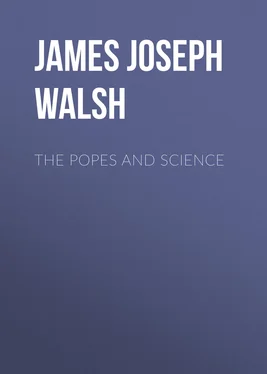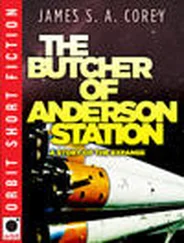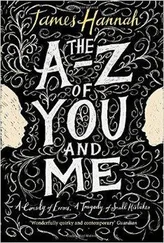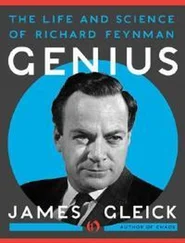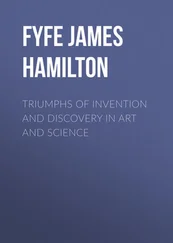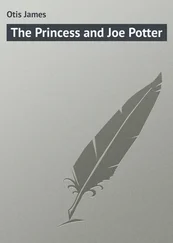James Walsh - The Popes and Science
Здесь есть возможность читать онлайн «James Walsh - The Popes and Science» — ознакомительный отрывок электронной книги совершенно бесплатно, а после прочтения отрывка купить полную версию. В некоторых случаях можно слушать аудио, скачать через торрент в формате fb2 и присутствует краткое содержание. Жанр: foreign_prose, foreign_religion, foreign_antique, на английском языке. Описание произведения, (предисловие) а так же отзывы посетителей доступны на портале библиотеки ЛибКат.
- Название:The Popes and Science
- Автор:
- Жанр:
- Год:неизвестен
- ISBN:нет данных
- Рейтинг книги:4 / 5. Голосов: 1
-
Избранное:Добавить в избранное
- Отзывы:
-
Ваша оценка:
- 80
- 1
- 2
- 3
- 4
- 5
The Popes and Science: краткое содержание, описание и аннотация
Предлагаем к чтению аннотацию, описание, краткое содержание или предисловие (зависит от того, что написал сам автор книги «The Popes and Science»). Если вы не нашли необходимую информацию о книге — напишите в комментариях, мы постараемся отыскать её.
The Popes and Science — читать онлайн ознакомительный отрывок
Ниже представлен текст книги, разбитый по страницам. Система сохранения места последней прочитанной страницы, позволяет с удобством читать онлайн бесплатно книгу «The Popes and Science», без необходимости каждый раз заново искать на чём Вы остановились. Поставьте закладку, и сможете в любой момент перейти на страницу, на которой закончили чтение.
Интервал:
Закладка:
At Louvain he continued his anatomical work, finding it difficult enough to procure human material, but using such as might come to hand. The story is told of his first attempt to get a complete skeleton. A felon had been executed just outside the walls of Louvain, and his remains were, as was the custom at that time, allowed to swing on the gibbet until the birds of the air had eaten his flesh and the wind and rain had bleached his bones. As might be thought, these bones were a great temptation to Vesalius. Finally, one night he and a fellow student stole out of the town and robbed the gibbet of its treasure. In order to accomplish their task–no easy one, because the skeleton was fastened to the beams of the scaffold by iron shackles–they had to remain out all night. They buried it and later removed it piecemeal, and when they had finally assembled the parts again it was exhibited as a skeleton brought from Paris.
Even this story has been made to do duty as showing the ecclesiastical opposition to dissection and the advancement of anatomical knowledge. It is hard to understand, however, why men will not look at such an incident from the standpoint of our own experience in the modern time. There are men still alive in certain states of the Union who recall how much trouble they had to go to as medical students in order to procure a skeleton. If we go back fifty years, nearly every skeleton that physicians had in their offices was obtained in some way almost as surreptitious as that just described, or was purchased through some underhand channel. They were dug up from potter's field, or sometimes procured from complacent prison officials, or occasionally stolen from respectable cemeteries. In this respect Vesalius was not much worse off than were his medical colleagues for nearly three centuries and a half after his time in the northern countries. It was easier to procure such material in Italy.
Vesalius had that precious quality that makes the investigator desire to see and know things for himself. He could not get opportunities for definite anatomical knowledge in the western part of Europe, so he gave up his practice, though Louvain, his native town, was a most promising place, having nearly 200,000 inhabitants and business relations with all the world at the moment, and went down into Italy where he knew that he could pursue his anatomical studies to his heart's content. The tradition of the work that Zerbi and Achillini had done, and especially what Benivieni and Berengar had accomplished within a few decades before this time, was commonly known in all the medical schools of Europe, and many an ardent young anatomist in the West yearned for the opportunities and the incentive that he could obtain down there. Church influence was predominant; the ecclesiastics were the actual rulers of the universities, but medical science, and above all anatomy, was being studied very ardently. Vesalius thus prompted, came and found what he looked for. At the end of ten short years of work down there, he had completed his text-book of anatomy which was to earn for him deservedly the title of Father of Anatomy.
At first Vesalius seems to have spent some time in Venice, where he attracted considerable attention by his thorough, practical anatomical knowledge and independent mode of thinking. After only a short period in Venice, however, he proceeded to Padua, where he spent some months in preparation for his doctor's examination. It is known that, having completed his examination in the early part of December, 1537, he was allowed within a few days to begin the teaching of anatomy, and, indeed, was given the title of professor by the university authorities.
The next six years were spent in teaching at Padua, Bologna and Pisa, and in fruitful investigation. Every opportunity to make dissections was gladly seized, and Vesalius's influence enabled him to obtain a large amount of excellent anatomical material. He began at once the preparations for the publication of an important work on the anatomy of the human body. This was published in 1543 at Basel, at a time when its author was not yet thirty years of age. It is one of the classics of anatomical literature. Even at the present day it is often consulted by those who wish to see the illustrative details of Vesalius's wonderful dissections as given in the magnificent plates that the work contains. It has become one of the most precious of medical books, and is eagerly sought for by collectors.
For ten years more Vesalius devoted himself to his favorite studies in anatomy and physiology, for it must not be forgotten that he was constantly applying his knowledge of form and tissue to function, and came to be looked upon as the leading medical investigator of the world. It is apparently sometimes not realized, however, that Vesalius was no mere laboratory or dissecting room investigator. After the publication of his great work on anatomy he set himself seriously to the application of what he had discovered to practical medicine and surgery. He was an intensely practical man. As a consequence, it was not long before consultations began to pour in on him, and he came to be considered as one of the greatest medical practitioners of his time. Ruling princes in Italy, visitors of distinction, high ecclesiastics–all wished to have Vesalius's opinion when their cases became puzzling. This is a side of his character that many of his modern biographers have missed. Even Sir Michael Foster, whose knowledge of the history of medicine, and especially of physiology, makes one hesitate to disagree with him, seems not to have appreciated Vesalius's interest in practical medicine. A laboratory man himself, he was apparently not able to appreciate why Vesalius should have given up his scientific research in Italy to accept the post of Royal Physician to the Emperor Charles V.
Professor Foster thinks it necessary, then, to find some other reason than the temptation of the importance of the position to account for Vesalius's acceptance of it. He concludes that it was because of discouragement in his purely scientific studies as a consequence of the opposition of the Galenists. Opposition on the part of the old conservative school of medicine there was, and some of it was rather serious. This was not enough, however, to have discouraged Vesalius. Professor Foster goes so far as to wax almost sentimental over the fact that the acceptance of the post of physician to Charles V. ended Vesalius's scientific career; "for though in the years which followed the Father of Anatomy from time to time produced something original, and in 1555 brought out a new edition of his Fabrica, differing chiefly from the first one, so far as the circulation of the blood is concerned, in its bolder enunciation of its doubts about the Galenic doctrines touching the heart, he made no further solid addition to the advancement of knowledge. Henceforward his life was that of a court physician much sought after and much esteemed–a life lucrative and honorable and in many ways useful, but not a life conducive to original inquiry and thought. The change was a great and a strange one. At Padua he had lived amid dissections; not content with the public dissections in the theatre, he took parts, at least, of corpses to his own lodgings and continued his labors there. No wonder that he makes in his Fabrica some biting remarks to the effect that he who espouses science must not marry a wife; he cannot be true to both. A year after his arrival at the Court he sealed his divorce from science by marrying a wife; no more dissections at home, no more dissections indeed at all; at most, some few post-mortem examinations of patients whose lives his skill had failed to save. Henceforth his days were to be spent in courtly duties, in soothing the temporary ailments, the repeated gouty attacks of his imperial master, in healing the maladies of the nobles and others round his throne, and doubtless in giving advice to more humble folk, who were from time to time allowed to seek his aid. Whither his master went, he went too, and we may well imagine that in leisure moments he entertained the Emperor and the Court with his intellectual talk, telling them some of the fairy tales of that realm of science which he had left, and of the later achievements of which news came to him, scantily, fitfully and from afar."
Читать дальшеИнтервал:
Закладка:
Похожие книги на «The Popes and Science»
Представляем Вашему вниманию похожие книги на «The Popes and Science» списком для выбора. Мы отобрали схожую по названию и смыслу литературу в надежде предоставить читателям больше вариантов отыскать новые, интересные, ещё непрочитанные произведения.
Обсуждение, отзывы о книге «The Popes and Science» и просто собственные мнения читателей. Оставьте ваши комментарии, напишите, что Вы думаете о произведении, его смысле или главных героях. Укажите что конкретно понравилось, а что нет, и почему Вы так считаете.
